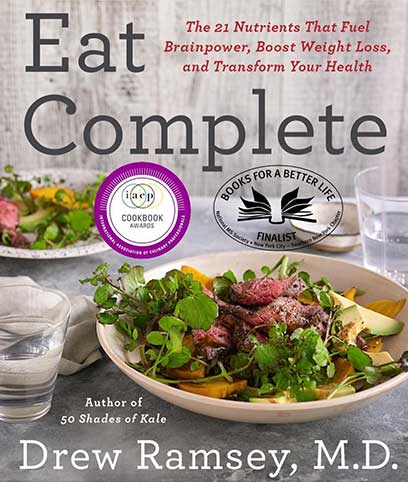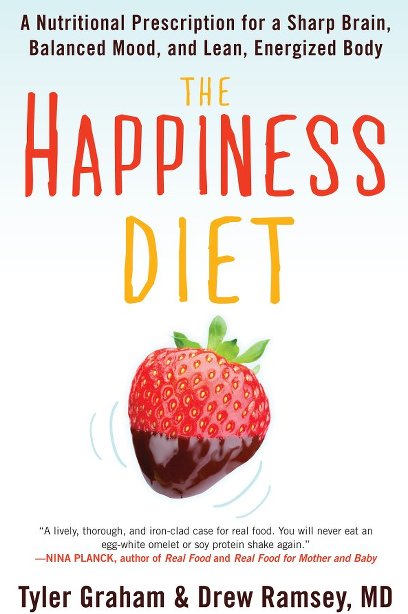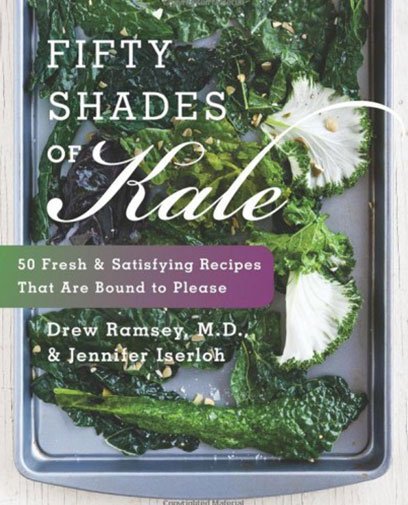Image courtesy Flickr/C Henrik Anderson
For any addictive behavior, a good place to start the path of recovery is at the end of your fork. Beating an addiction and staying committed to sustained recovery depends on your optimal mental health, and science tells us that your mental health is powerfully affected by what you eat. A path to recovery from destructive addictions, including those to drugs, alcohol, compulsive eating or gambling, could start at your next meal.
In my work with patients, I have seen how the 12-step approach can be very effective. But I have also seen that without dietary change an individual attempting abstinence and recovery is needlessly more vulnerable to relapse. At the heart of the problem are a new set of dietary choices. Americans mainly eat highly-processed foods — food not designed by nature but in a lab. Their main ingredients are sugar, refined carbohydrates, and vegetable oils, and they are designed to taste great. When we eat these foods we light up the same pleasure-rewards areas in our brains that are activated by drugs like cocaine and heroin as well as by a variety of addictive behaviors. Ingesting dopamine-triggering foods, in other words, subjects your brain to the ups and downs, highs and lows, of any addictive substance or activity since you are stirring the same neurochemical pot (no pun intended).
Yet, that’s only the half of it. Many substance abusers hooked on drugs and alcohol suffer from serious nutritional deficiencies that magnify the effects of their addictive illness. Alcohol dependency, for example, can lead to thiamine deficiency, and increases the risk of deficiencies of vitamin B12, vitamin D, and magnesium — all nutrients needed for optimal brain function. Processed foods, in particular, have been stripped of much of their natural nutritional value, so they fail to supply the essential nutrients our bodies need in general and all the more so when substances further deplete our body’s stores. Nutritional deficiencies can result in you feeling rundown, foggy-brained, distractible and depressed. A diet of junk food combined with addictive tendencies is a combination that robs you of the neurochemical ingredients you need to function, and thus to bring your full capacities to recovery.
I had a patient I’ll call Pam. If you met her, you might presume she had everything to live for. She was, at 36, a junior executive who was married with two young children. Yet when Pam opened up as she sat on my couch during a session, she told me that her troubles at home and work had brought her, more than once, to put a butcher knife at her wrist and imagine ending her emotional pain forever.
For the previous 12 years, Pam drank wine — a bottle every night — and regularly smoked marijuana and took pain killers. Yet she denied — to herself, her family and to me — that substance abuse was a part of her problem. “I’m not an alcoholic,” she said with certainty. Because she was such a long way from even addressing her (conventional) addictions, I inquired about what else she was ingesting: “What did you eat for breakfast?”
That was when I discovered that Pam wasn’t just intoxicating her brain; she was starving it of nutrients. She skipped breakfast most days, or merely had a cup of coffee and juice. She put soy milk in her coffee because she thought that all dairy and meat products were unhealthy. She also avoided fat in all her foods because she believed fat would make her fat. She did not know that our brains rely on healthy fats for their functioning. Two fats, EPA and DHA, are known particularly for their mood-boosting qualities. By avoiding any fats, Pam was avoiding foods that would provide her brain with these naturally-necessary and therapeutic molecules.
I asked Pam to go to a local lab for some blood work. We talked about her making some dietary changes, especially the merits of nutrient-rich brain foods, such as eggs and fish. She admitted in a guilty whisper, “I’ve been craving a hamburger.” That wasn’t so surprising. Like a good number of other women of reproductive age, Pam’s blood was iron deficient, another way her body did not have what it needed to function well. With inadequate iron she felt listless; she lacked the energy to cope with her demanding job and a family as well.
With so many challenges standing in the way of recovering from addiction, the simplest first step is to stop depriving your brain of good and necessary food and nutrients. Recovery, in fact, depends in part on developing new chemical pathways by which the brain overcomes habitual behaviors. You owe it to your recovery to nourish the brain, to poise it for better learning, stable moods, and less intrusive cravings.
Here’s the good news. Eating to support recovery need not be a deprivation: It can be delicious. And when you feed your brain essential nutrients from their natural sources, you are taking better care of yourself, which is a fundamental step in rebuilding your brain and your self-esteem. A diet geared to stabilize mood and minimize cravings will be high in omega-3 fats from fatty fish, folates from leafy greens, vitamin B12 from eggs and meat, and the many brain-healthy nutrients amply found in colorful fruits and vegetables. Instead of the sugar (dopamine) rushes from eating simple carbohydrates, the sustained feeling of fullness from healthy foods can fortify you in your recovery.
When Pam changed her diet, her moods stabilized and her suicidal thoughts dissipated. The knife was for cutting meat, fish, and vegetables. A better-nourished brain and taking control of her eating habits were instrumental steps in her addressing her alcohol and drug problem. At this point she could now listen to the concerns of family members about her addiction. She started going to AA with a friend. She stuck with her diet and got in the habit of regular exercise instead of daily sugar or alcohol. Pam just celebrated her first year of sobriety, a recovery journey that began when she took her first bite of real food for breakfast.
Originally published Tuesday, July 17, 2012 at The Huffington Post. Subscribe to my blog here.








